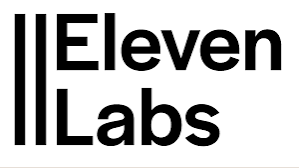Procreate, a popular design app for iPads, has taken a definitive stance against the integration of generative AI into its products. Despite acknowledging the merits of machine learning, the company has publicly declared that it will not pursue generative AI technology, citing concerns about its impact on human creativity.
On its website, Procreate highlighted that while machine learning is a “compelling technology with a lot of merit,” the current trajectory of generative AI is incompatible with the company’s vision. Procreate expressed that it is not interested in adopting a technology that poses a threat to the creative process, even if this decision might make the company “seem at risk of being left behind.”
In a video shared on X (formerly Twitter) on Monday, Procreate CEO James Cuda articulated an even stronger opposition to generative AI. “I really f****** hate generative AI,” Cuda stated. He emphasized his dissatisfaction with the industry’s direction and the detrimental effects on artists. Cuda reaffirmed that Procreate will not incorporate generative AI into its products, which are designed with the intention that a human will always be at the center of the creative process.
Positive Reception from the Artistic Community
Procreate’s stance has garnered widespread approval from digital artists, many of whom are disillusioned with other digital art platforms that have embraced AI technology. The digital art community has been vocal in its concerns about the potential for AI to undermine the value of human creativity.
For example, in 2022, Clip Studio Paint, another illustration app, faced backlash from its user base when it announced plans to introduce an AI-powered image generator tool. The negative response led the company to retract its plans.
Conversely, Adobe, a leader in digital design software, has integrated several generative AI features into its products. However, Adobe faced criticism when updates to its terms of service appeared to suggest that the company might train AI models using user-generated content. Adobe later clarified that it does not use customers’ content to train AI models.
A Standout Move in a Tech-Driven Industry
In an era where digital art platforms are rapidly adopting AI, Procreate’s decision to go against the trend is noteworthy. The company’s announcement has resonated strongly with artists and designers who are concerned about the implications of AI in creative fields. Procreate’s commitment to supporting human creativity over automated processes has sparked discussions about the future of AI in the design industry.
“We don’t exactly know where this story is going to go or how it ends. But, we believe that we’re on the right path, supporting human creativity,” Cuda concluded, leaving open the question of whether other companies might follow Procreate’s lead.
See also: The Legality Of AI-Generated Political Endorsements


















